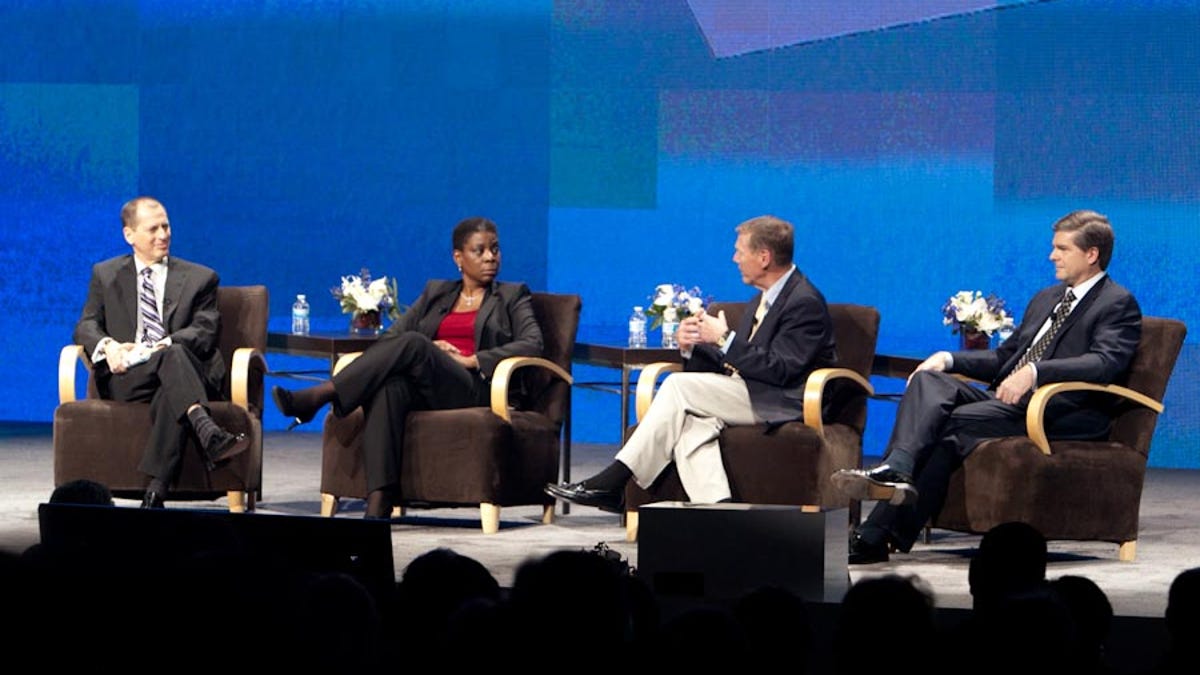Eat your own before someone else does, CEOs tell CES panel
At a Consumer Electronics Show panel on innovation, executives from Xerox, Ford, and Verizon encourage companies to gin up products that displace their own, lest rivals do it for them.

LAS VEGAS--The Consumer Electronics Show is really about the here and now, a showcase for the sleekest, fastest, shiniest gizmos that will show up in stores in the coming months.
But a panel of corporate leaders discussed the importance of creating corporate cultures that encourage companies to displace their own gadgets--to develop the next generation of devices that can replace the ones so lavishly displayed on the show floor here. Because if a company doesn't displace its own gadgets, rivals will.
"If you don't make those investments, clearly somebody else will cannibalize your business," said John Stratton, Verizon executive vice president, in charge of the telecom's enterprise solutions business.
The comments came during the Innovation Power Panel at the Consumer Electronics Show here this morning, which included Stratton, Xerox CEO Ursula Burns, and Ford Motor CEO Alan Mulally. The panel, moderated by Consumer Electronics Association CEO Gary Shapiro, focused on creating and nurturing innovation.
"Innovation is at the core of what we do at Xerox," Burns said. "I think most chief executives would say that, and if you don't, you shouldn't be a CEO."
To build that culture, Xerox pumps $1 billion a year into research. The company works to make sure its employees are well compensated.
"You've got to be committed to the journey--and that's money," Burns said.
And Burns said the company understands that employees will make mistakes as they develop products. That's because she knows she makes mistakes too. Every day, in fact. That's why she's loathe to make too much out of those missteps.
"Those are called mistakes. They're not called failures. It's life," Burns said.
As long as those errors are in design rather than in judgement, Xerox rolls with them, and tries to learn from them.
For Ford's Mulally, turning around the carmaker meant getting workers to zero in on innovation. They company has rekindled a vision that Henry Ford once had for the automaker--"Opening the highways to all mankind." Mulally has used that to get Ford employees to think beyond what they've already accomplished, and think about providing a service to the world.
"The more you can get focused on where your business is going...it just absolutely unleashes the talent inside your organization," Mulally said.
And all three executives said that the key is to balance short-term pressure from shareholders with long-term innovation that can sustain the company.
"I have not had a debate yet with a shareholder or an investor, or especially my board, in not investing for the future," Xerox's Burns said. "They want near-term returns. But they are also very aware of the fact that if you don't invest today, you won't be prepared for the future."

